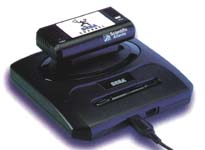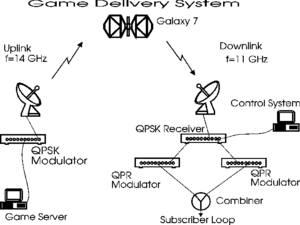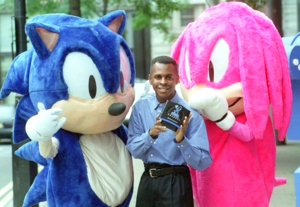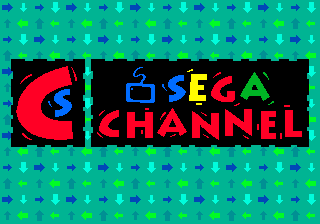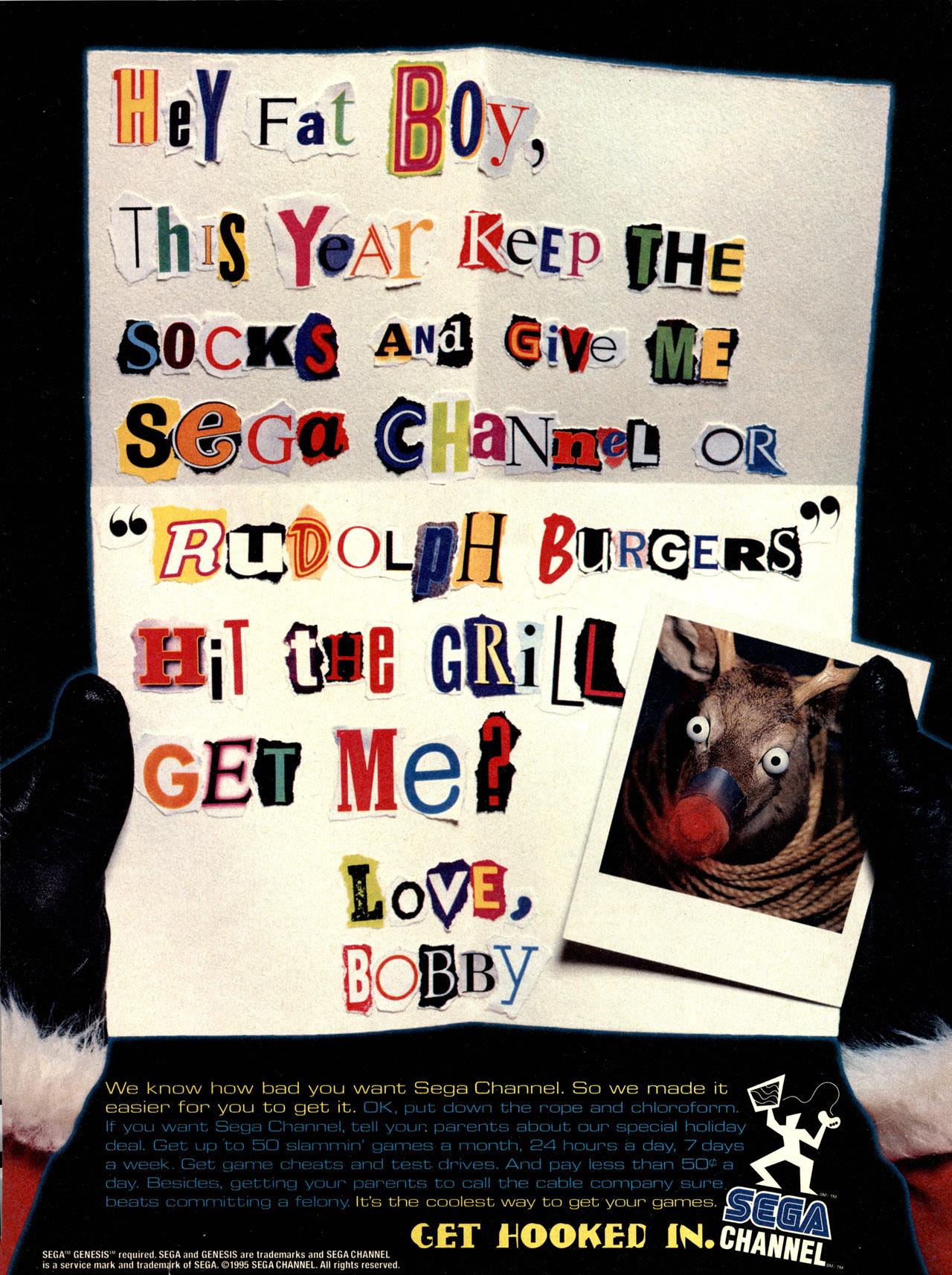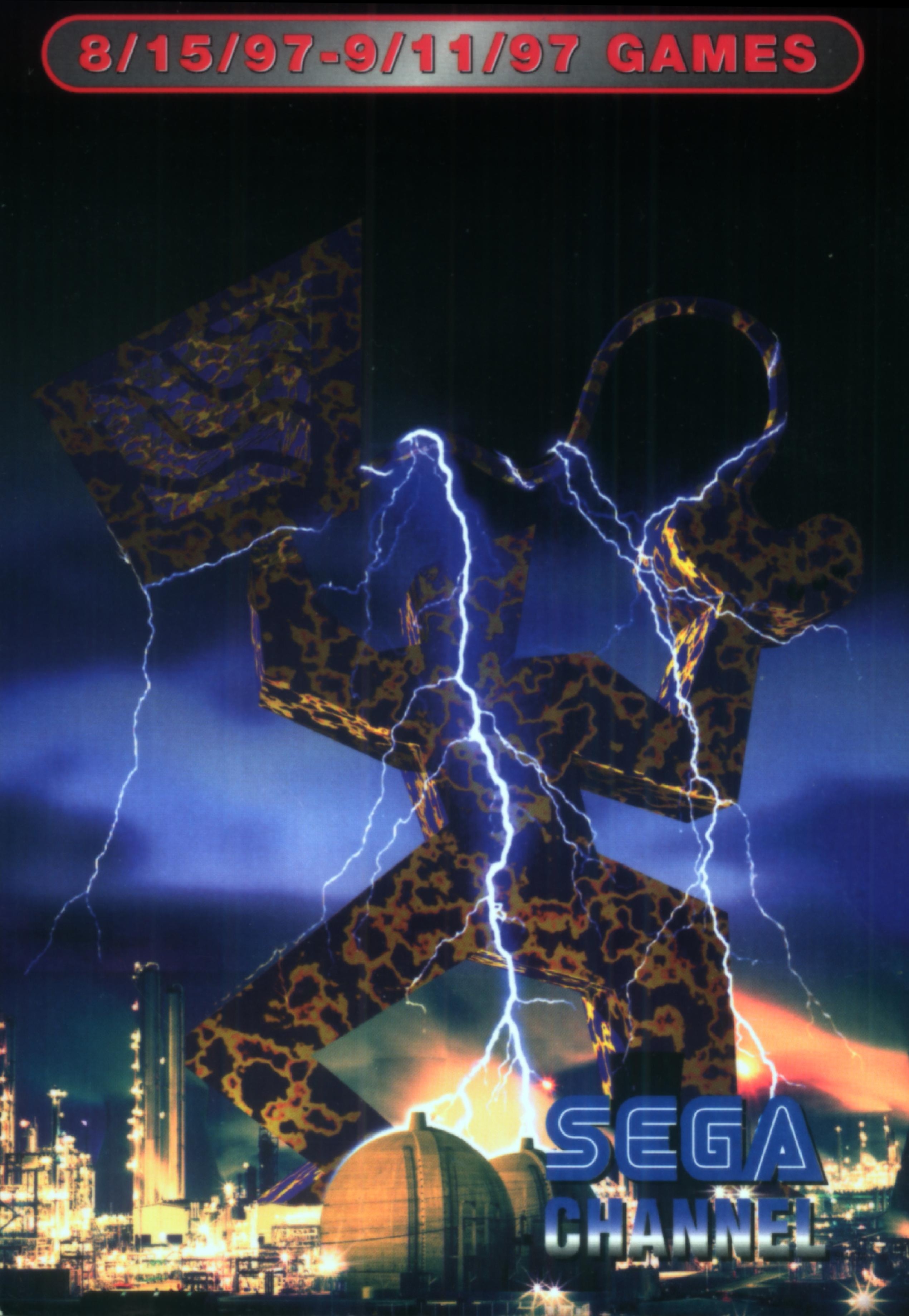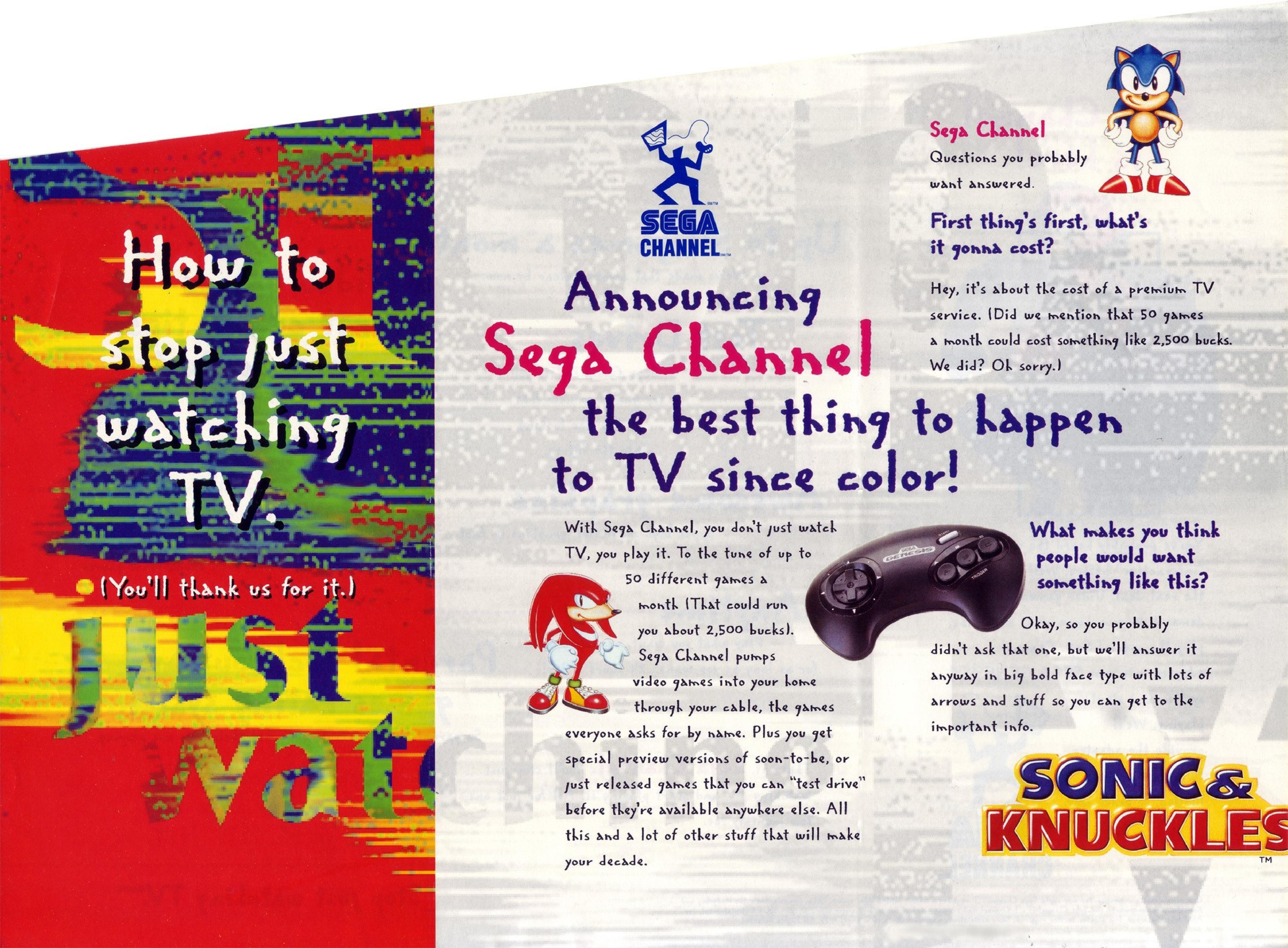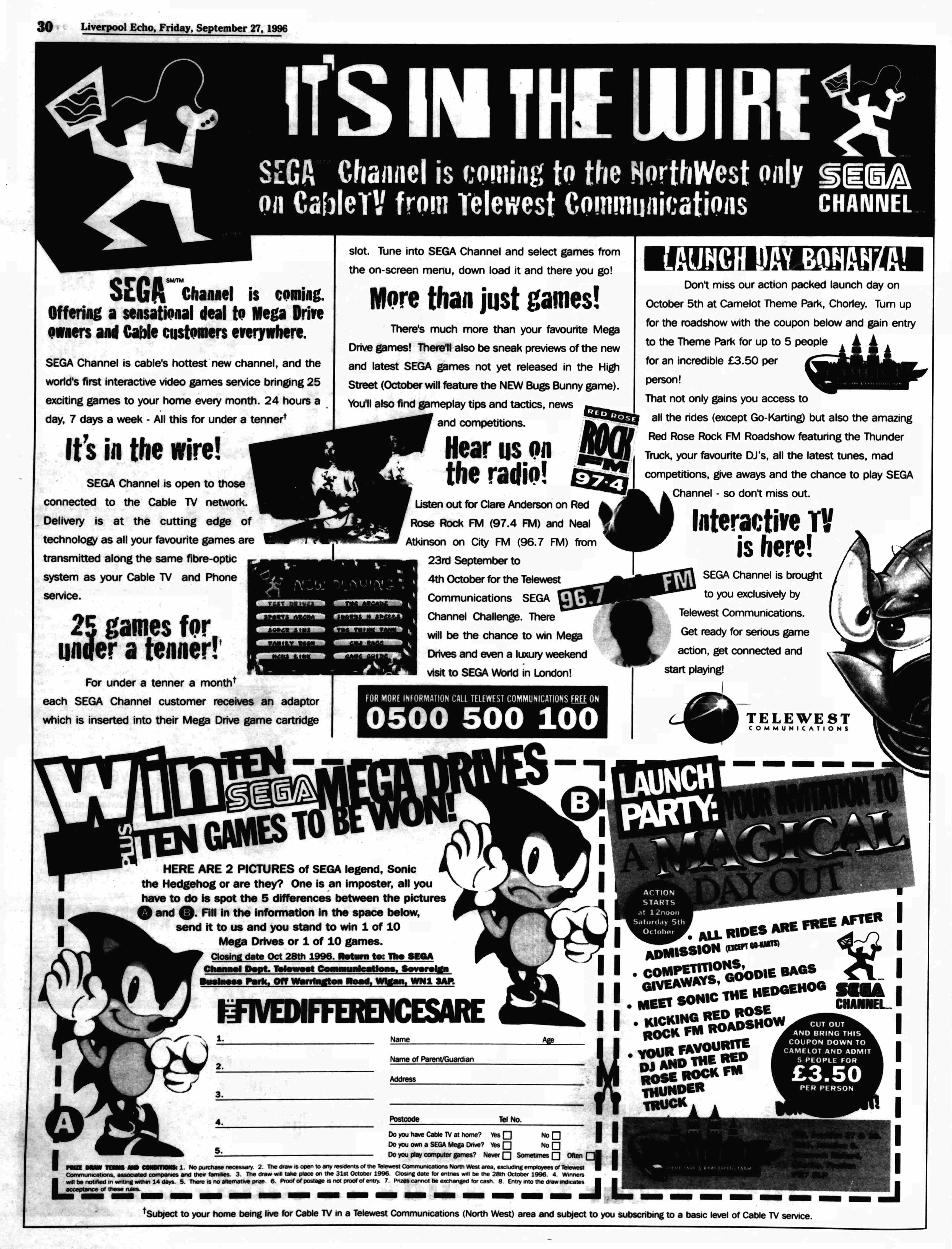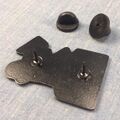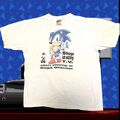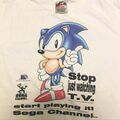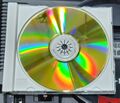Difference between revisions of "Sega Channel"
From Sega Retro
| Line 337: | Line 337: | ||
====The Netherlands==== | ====The Netherlands==== | ||
| − | The Sega Channel was announced to start in June 1995 for ƒ35 a month <ref>https://www.delpher.nl/nl/kranten/view?query=sega&facets%5Bperiode%5D%5B%5D=1%7C20e_eeuw%7C1990-1999%7C&page=47&maxperpage=50&sortfield=date&coll=ddd&identifier=KBPERS01:003252008:mpeg21:a00015&resultsidentifier=KBPERS01:003252008:mpeg21:a00015&rowid=9</ref>but and the end it began broadcasting | + | The Sega Channel was announced to start in June 1995 for ƒ35 a month <ref>https://www.delpher.nl/nl/kranten/view?query=sega&facets%5Bperiode%5D%5B%5D=1%7C20e_eeuw%7C1990-1999%7C&page=47&maxperpage=50&sortfield=date&coll=ddd&identifier=KBPERS01:003252008:mpeg21:a00015&resultsidentifier=KBPERS01:003252008:mpeg21:a00015&rowid=9</ref>but and the end it began broadcasting on November 6, 1996{{ref|https://web.archive.org/web/19970428200813fw_/http://www.eneco.nl/persbericht.html#Part6}}. The service was provided by Eneco, beginning in the Rotterdam area, with Dordrecht and Schiedam planned for early 1997. |
Eneco estimated that 20,000 Mega Drive owners would be covered by the service, but only 50 signed up in the first month, starting a trend of poor sales. Despite this, there was no plans to close the channel as long as the operator was provided with CDs, and so it continued throughout 1997, closing at the end of 1997, the same time as the other European Sega Channel services were axed. At the time of closure the service was still limited to Rotterdam, with the planned expansions never occurring. | Eneco estimated that 20,000 Mega Drive owners would be covered by the service, but only 50 signed up in the first month, starting a trend of poor sales. Despite this, there was no plans to close the channel as long as the operator was provided with CDs, and so it continued throughout 1997, closing at the end of 1997, the same time as the other European Sega Channel services were axed. At the time of closure the service was still limited to Rotterdam, with the planned expansions never occurring. | ||
Revision as of 17:02, 20 November 2024
- For the Asian version, see Sega Channel (Asia).
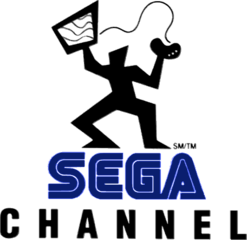
| |||||||||||||||||||||||||||||||||||
| Sega Channel | |||||||||||||||||||||||||||||||||||
|---|---|---|---|---|---|---|---|---|---|---|---|---|---|---|---|---|---|---|---|---|---|---|---|---|---|---|---|---|---|---|---|---|---|---|---|
| Made for: Sega Mega Drive | |||||||||||||||||||||||||||||||||||
| Manufacturer: Sega, Scientific Atlanta, General Instrument | |||||||||||||||||||||||||||||||||||
| Licensor: STT Video Partners | |||||||||||||||||||||||||||||||||||
| Type: Network tool | |||||||||||||||||||||||||||||||||||
|
Sega Channel was a project developed for the Sega Mega Drive video game console, allowing the streaming of digital content through cable television (CATV). Rather than purchase individual video games physically, the Sega Channel would see customers pay a monthly subscription fee, allow them to stream games directly to their home.
While a similar attempt at such a service had been tried with the Intellivision some years prior, the Sega Channel is seen as the first successful venture for home console video games, particularly in North America where broadcasts spanned a four year period between 1994 and 1998. Attempts across the world to bring the Sega Channel to consumers; this iteration was primarily seen across the Western world, while slightly different Sega Channel service was offered in Asia.
Contents
- 1 System
- 2 History
- 2.1 Development
- 2.2 Pre-release and testing
- 2.3 Release
- 2.3.1 United States
- 2.3.2 Singapore
- 2.3.3 Canada
- 2.3.4 Thailand
- 2.3.5 Tele-Communications International Inc.
- 2.3.6 United Kingdom
- 2.3.7 Ireland
- 2.3.8 The Netherlands
- 2.3.9 Germany
- 2.3.10 Norway
- 2.3.11 Finland
- 2.3.12 Australia
- 2.3.13 France
- 2.3.14 New Zealand
- 2.3.15 Malta
- 2.3.16 Argentina
- 2.3.17 Chile
- 3 Demo Cartridges
- 4 Magazine articles
- 5 Promotional material
- 6 Patents
- 7 Merchandise
- 8 Photo gallery
- 9 Physical scans
- 10 External links
- 11 References
System
While the specifics varied by country, the fundementals of the Sega Channel are the same across the world; customers would sign up with a cable television package which offered a Sega Channel stream, and use a special adapter to allow the Mega Drive console decode the Sega Channel television signal. Adapters were primarily available through mail order, though some were given to customers who had just signed up with a compatible TV package as part of their subscription deal. They could also be purchased from headends or offices of participating cable companies.
Adapters came in several shapes and sizes but share the same basic design; they are to be placed within the Mega Drive's cartridge slot and then linked to the cable television box via an RF connector. Adapters also require their own external power supply, and depending on the model, came with plastic spacers to make sure the unit can fit comfortably in both the original Mega Drive/Genesis and Mega Drive/Genesis II consoles. Unlike other add-ons for the system, such as the Sega Mega-CD, Sega 32X (or even the earlier Mega Modem), the Sega Channel adapter only requires the cartridge slot to function, meaning it is theoretically compatible with any device with a Mega Drive cartridge slot.
The Sega Channel service differed from other television channels as there was nothing to "watch". Instead, digital data would be broadcast through the cable provider and received by the Sega Channel adapter, which in turn would attempt to convert it into program code. Much like an ordinary television channel, the user had no means of determining what was broadcast; while the contents were transmitted on a loop, the adapter is often forced to "wait" until it got access to the data it required.
This system is very similar to closed captioning or Teletext, just with all of the transmission being reserved for digital data, rather than the small areas between the frames of the image.
Several signals were involved during the broadcast of Sega Channel; one to broadcast menus (which was on continuously) and another to broadcast individual games and content. This second signal would cycle through content individually, leading to potential thirty seconds wait times until the correct piece of content was being broadcast. If the broadcast matched with the request from the adapter, the program would be downloaded and stored in the unit's RAM. Nothing was saved permanently; if the user turned off the device all saved data would be lost, tough a soft reset of the console was still a possibility.
As a radically different system to a standard cable channel, extra precautions would need to be taken by the cable operators before broadcasting. At the time, all cable services were analogue and would therefore pick up noise, potentially disrupting transmissions. The signal would therefore need to be cleaned by the providers as much as possible. Sega's assistance in these matters meant that despite being a gaming company, they had a major influence in the cable television infrastructure across the world.
Distortion, however, was unavoidable in many cases and so downloads would often fail (bearing in mind that some games were 4MB in size). The solution was simply to reset the console and try again. Typically a broadcast would loop indefinitely for about a month, after which it was swapped out for a different broadcast with new menus and games. This allowed the Sega Channel to constantly evolve; on occasion, Sega would update the software mid-month to accommodate competitions or special one-day broadcasts (such as allowing full access to the newly released Primal Rage for 24 hours).
Some accessories are said to have caused trouble with the Sega Channel adapter, namely the Konami Justifier.
History
Development
Pacific SoftScape, a development company best known for having previously created X-Men, was chosen by Sega of America to develop the software used for the North American release of the Sega Channel, with company programmer Dave Castelnuovo creating the BIOS used in the system's physical adapters.[1] During this early stage of development, the service was known under the working title of the Sega Network.[2]
| “ | The producer first approached me when I was still on staff at SOA. I composed an initial set of songs in GEMS for the Genesis. After I had left SOA and moved back to Santa Monica, they contracted me to do a few more and finish the initial interface and intro screens. I think most of the versions were about 90% my music from what I can tell from Youtube! | „ |
Many of the service's themes were composed by Sega of America audio director David Javelosa. One of the menu themes, "The Dungeon/Wings N Wheels", was originally composed for Ecco: The Tides of Time, but ended up being reused for the Sega Channel instead.[6] Another Javelosa-created menu theme, "Think Tank/The Arcade", was originally written as a 1993 composition titled "Loving U Remix"[7] (originally by Javelosa's band Los Microwaves for their 1981 LP Life After Breakfast[2]), and was later released on the artist's self-published 1999 album More Music For Teenage Sex.[8] Some music was also composed by John Baker, who had supplied the music for ToeJam & Earl. The earlier Sega Channel menus share a similar aesthetic with that game as well.
Later, the service changed working titles from Sega Network to SegaTV or Sega TV, with references to this name found in a 2000 legal filing regarding Time Warner affiliates,[9] unused error strings in Sega Channel (Demo Cartridge 4),[10] in official Sega 32X documentation files[11] and even an early logo found in the portfolio of artist Alan Murphy.[12] The change to its final name of Sega Channel would not occur until fairly late in the development process.
STT Video Partners, the joint venture which owned and managed the Sega Channel, reached out to New York-based design firm Alan Brooks Design to create the service's famous logo. Alan Brooks would come up with a striking design consisting of an angular human figure holding a television and Mega Drive Control Pad[13][4] - a well-received piece of iconography which eventually gain both a name (Sega Pat) and a status as the Sega Channel's fondly-remembered mascot.
Pre-release and testing
The Sega Channel was primarily envisioned for the North American audience due to relatively widespread cable adoption[14] and the strong positioning of Sega of America at the time. The service was initially announced in April 1993, as a joint venture between Sega, Tele-Communications Inc. (TCI) and Time Warner Cable[15], with the support of Southern New England Telecommunications Corporation[16][17][18][19] (SNET). At the time, TCI was the largest television cable provider in the United States, and Time Warner was the second largest, each boasting millions of customers and extensive overseas tele-communications businesses.
Initial plans were to get the Sega Channel service running by early 1994[15], though a series of delays saw it pushed back several months. Initial testing of the service actually took place in Japan, where it was trialed among 500 Japanese homes during the first few months of 1994[20]. Manufacturers Scientific-Atlanta finally shipped some US headends in April[21] before demonstrating the system at the National Cable & Telecommunications Association show of 1994[22]. On Sega's end, the firm announced and demonstrated the Sega Channel at Summer CES 1993 in early June[23].
Trials covering 5,000 North American customers in twelve[14] US test markets began on June 6th with Capitol Cablevision (Charleston, South Carolina), and continuing with TCI Cablevision of Texas Inc. (Beaumont, Texas); TCI of New York Inc. (Buffalo, New York); Cablevision of Gastonia (North Carolina); TCI Cablevision of Wyoming Inc. (Cheyenne, Wyoming); TCI Cablevision of Mid-Michigan Inc. (East Lansing, Michigan); TCI Cablevision of Alabama Inc. (Hoover, Alabama); Time Warner Cable (Nashua, New Hampshire); TCI Cablevision of Oregon Inc. (Portland, Oregon); Warner Cable of Reston (Virginia); American Cablevision (St. Louis, Missouri); and TCI Cablevision of Walnut Creek (California).
Reaction was positive and a planned national rollout was put in place for December[24].
Also planned was an agreement with the Californian-based Interactive Network Inc., allowing Sega Channel users to submit high scores to a central database through a telephone line[25]. The status of the planned pilot scheme is not currently clear.
Release
United States
The US service was the biggest and most actively maintained of all the Sega Channels, being available to one third of the US population and peaking at around 250,000 subscribers. At the time, new, boxed Mega Drive/Genesis games were retailing for roughly $60, and one or two day rental charges were averaging around $4 across the country. A survey conducted by Sports Illustrated for Kids in 1995 even suggested the younger demographic were five times more likely to want Sega Channel over a new console[26].
Test markets aside, the Sega Channel officially launched in the US on December 12th 1994 in Pittsburgh, Pennsylvania, with NHL star Mario Lemieux present at a promotional event[27]. At the time, the service was being offered for $12.95 a month with a one-off $25 activation fee, with over fifty games were available at any one time, and the contents changing on a monthly basis. Adapters were manufactured by Scientific-Atlanta and General Instrument (two of the largest manufacturers of cable TV equipment) and were meant to be returned to the cable company upon cancellation of the service.
Rollouts continued across 1995, with Suburban Cable of Philadelphia, Pennsylvania broadcasting the service beginning that March[28] and Seattle, Washington in April[29].
Three more cable companies, Continental Cablevision (soon after renamed to MediaOne), Adelphia (which went bellyup in 2002 after an accounting scandal) and Cox Cable started offering the Sega Channel in early 1996, giving access to a further 8 million potential consumers[30].
A "wireless" version of the service was displayed in July 1996 at the WCA Show in Denver, Colorado[31], becoming the standard later in the year. Some plans, however seemingly failed to materialize, such as the rollout of special headsets[32], 3D glasses[33] and a sharing of technologies with Catapult's XBAND project[34].
Beginning January 17th, 1997, the schedules began to be changed fortnightly, with the service offering 70 games a month (working out as 35 games every two weeks, i.e. technically less choice)[35].
The US is the only region thought to have had a purely automated service, albeit not country-wide. From a central office in Denver, Colorado (where TCI was headquartered), the channel was transmitted to the Galaxy 7 satellite, and then relayed back down to cable operators across the country. Other regions saw Sega physically send out compact discs to operators. Following a series of failures starting in June 1998, the Galaxy 7 satellite spun out of geostationary orbit in November 2000, and is now drifting across space[36][37].
As well as downloadable versions of full games, Sega of America offered "Test Drives"; demo versions of upcoming or recently released games, either with features disabled or strict time limits on play. It also ran several promotions through the service for Triple Play 96, Primal Rage[38], Earthworm Jim 2 and Mortal Kombat 3[39]. Sega of America were also keen to offer video game news and tips through the Sega Channel, and occasionally showcased subscriber artwork.
Also offered were "Express Games"[40]: an additional option where for $2.95, upcoming and newly released titles were available to rent for 48 hours (although technically the rental period only lasted until midnight the following day). These were generally games which had appeared as Test Drives the previous month, and as with other retail titles would not appear on the standard service until at least 90 days after retail release. Express Games first appeared in certain US test markets in July of 1995 with The Adventures of Batman and Robin, and continued through a limited number of US cable operators into 1996, before seemingly being quietly withdrawn.
The US Sega Channel is also notable for its "exclusive" games which have not been seen since broadcast. Such titles include Ocean Software's The Flintstones movie tie-in, Garfield: The Lost Levels, a Mega Drive version of The Chessmaster and the Sega Channel-branded Klondike. Several others were not released physically in the US, such as Donald in Maui Mallard, Mega Man: The Wily Wars and Nightmare Circus, European games Battle Frenzy, Hurricanes, Mr. Nutz and Power Drive, and Japanese imports Alien Soldier, Golden Axe III and Pulseman.
The Sega Channel lasted until June 30th 1998 before being closed down for good[41]. Sega of America did look into a Sega Saturn-compatible variant[26][40] but the plan never materialized.
List of games
- 688 Attack Sub (?)
- Aaahh!!! Real Monsters (?)
- Addams Family Values (?)
- The Adventures of Batman & Robin (?)
- Aero the Acro-Bat (1994)
- Aerobiz Supersonic (?)
- After Burner II (1994)
- Alex Kidd in the Enchanted Castle (1994)
- Alien Soldier (1996)
- Alien Storm (1994)
- Altered Beast (1994)
- Animaniacs (?)
- Arcus Odyssey (?)
- Ariel the Little Mermaid (?)
- Arrow Flash (?)
- Art Alive! (1994)
- Art of Fighting (?)
- Astérix and the Great Rescue (?)
- ATP Tour Championship Tennis (?)
- Awesome Possum Kicks Dr. Machino's Butt! (?)
- B.O.B. (?)
- Ballz 3D (?)
- Barbie Super Model (1994)
- Barkley Shut Up and Jam 2 (?)
- Barkley Shut Up and Jam! (1994)
- Barney's Hide & Seek Game (1994)
- Bass Masters Classic (?)
- Bass Masters Classic: Pro Edition (?)
- Batman Returns (?)
- Battletech: A Game of Armored Combat (1994)
- Beauty and the Beast: Belle's Quest (?)
- Beavis and Butt-Head (?)
- The Berenstain Bears' Camping Adventure (1994)
- Best of the Best: Championship Karate (1994)
- Bio-Hazard Battle (1994)
- Blades of Vengeance (?)
- Bloodshot (?)
- Body Count (?)
- Bonanza Bros. (?)
- Bonkers (?)
- Boogerman: A Pick and Flick Adventure (?)
- Boxing Legends of The Ring (?)
- BreakThru! (1996)
- Brett Hull Hockey '95 (?)
- Brutal: Paws of Fury (?)
- Bubba 'N' Stix (?)
- Bubble and Squeak (1994)
- Bubsy II (?)
- Bubsy in Claws Encounters of the Furred Kind (?)
- Bugs Bunny in Double Trouble (?)
- Cadash (?)
- California Games (?)
- Castle of Illusion Starring Mickey Mouse (?)
- Castlevania: Bloodlines (1994)
- Chakan (?)
- Championship Pool (?)
- Championship Pro-Am (1994)
- Chase H.Q. II (?)
- The Chessmaster (1996)
- Chiki Chiki Boys (?)
- Chuck Rock (?)
- ClayFighter (?)
- Clue (?)
- Coach K College Basketball (?)
- College Football's National Championship (?)
- College Football's National Championship II (?)
- Columns (1994)
- Combat Cars (1994)
- Comix Zone (?)
- Contra: Hard Corps (?)
- Crack Down (?)
- Crystal's Pony Tale (1994)
- Cyborg Justice (?)
- David Crane's Amazing Tennis (?)
- David Robinson's Supreme Court (1994)
- Decap Attack (?)
- Desert Demolition Starring Road Runner and Wile E. Coyote (?)
- Desert Strike: Return to the Gulf (?)
- Dick Tracy (?)
- Dino Land (?)
- Dinosaurs for Hire (1994)
- Disney's Aladdin (?)
- Donald in Maui Mallard (?)
- Doom Troopers (?)
- Dr. Robotnik's Mean Bean Machine (1994)
- Dungeons & Dragons: Warriors of the Eternal Sun (1994)
- Dynamite Headdy (1994)
- Earthworm Jim (1994)
- Earthworm Jim 2 (?)
- Earthworm Jim VideoHints 1 (1995)
- Earthworm Jim VideoHints 2 (1995)
- Ecco Jr. (?)
- Ecco the Dolphin (1994)
- Ecco: The Tides of Time (?)
- El Viento (?)
- ESPN Baseball Tonight (1994)
- ESWAT: City Under Siege (?)
- Eternal Champions (?)
- Ex-Mutants (1994)
- Exile (?)
- ExoSquad (?)
- F-15 Strike Eagle II (?)
- Fatal Fury (1994)
- Fatal Labyrinth (1994)
- Fever Pitch Soccer (?)
- FIFA International Soccer (?)
- FIFA Soccer 95 (?)
- Final Zone (?)
- Flashback (?)
- Flicky (?)
- The Flintstones (1996)
- Forgotten Worlds (?)
- Fun 'n' Games (1994)
- G-LOC: Air Battle (?)
- Galaxy Force II (?)
- Garfield: Caught in the Act (?)
- Garfield: The Lost Levels (1996)
- Gargoyles (?)
- Garry Kitchen's Super Battletank: War in the Gulf (?)
- General Chaos (?)
- Generations Lost (?)
- Ghouls'n Ghosts (1994)
- Gods (?)
- Golden Axe (1994)
- Golden Axe II (1994)
- Golden Axe III (1996)
- Granada (?)
- The Great Waldo Search (?)
- Greendog: The Beached Surfer Dude! (1994)
- Growl (?)
- Gunstar Heroes (1994)
- Hard Drivin' (?)
- Heavy Nova (?)
- Home Alone (?)
- Home Alone 2: Lost in New York (?)
- The Humans (1994)
- Hurricanes (?)
- Hyper Dunk: The Playoff Edition (1994)
- IMG International Tour Tennis (?)
- The Incredible Hulk (?)
- International Rugby (?)
- Iron Hammer (1996)
- Izzy's Quest for the Olympic Rings (?)
- James "Buster" Douglas Knockout Boxing (?)
- Jeopardy! (?)
- Jeopardy! Deluxe Edition (?)
- Jeopardy! Sports Edition (?)
- Jewel Master (?)
- Joe Montana II Sports Talk Football (1994)
- Junction (?)
- The Jungle Book (1994)
- Jungle Strike (?)
- Jurassic Park (?)
- Kawasaki Superbike Challenge (?)
- Kid Chameleon (1994)
- Klax (?)
- Klondike (1996)
- Landstalker: The Treasures of King Nole (1994)
- Last Battle (?)
- Lethal Enforcers (?)
- Lethal Enforcers II: Gun Fighters (?)
- Light Crusader (?)
- The Lost World: Jurassic Park (?)
- M-1 Abrams Battle Tank (?)
- Mario Andretti Racing (1994)
- Mario Lemieux Hockey (1994)
- Marko's Magic Football (?)
- Marsupilami (?)
- Math Blaster: Episode 1 (?)
- Mega Bomberman (?)
- Mega Man: The Wily Wars (1994)
- Mega Turrican (1994)
- Mercs (?)
- Mickey's Ultimate Challenge (1994)
- MiG-29 Fighter Pilot (?)
- Monopoly (?)
- Mortal Kombat (1994)
- Mortal Kombat 3 (?)
- Mr. Nutz (1995)
- Mutant League Football (?)
- Mutant League Hockey (?)
- Mystic Defender (?)
- NCAA Final Four Basketball (?)
- NCAA Football (?)
- NHL All-Star Hockey '95 (?)
- Nightmare Circus (1996)
- Normy's Beach Babe-O-Rama (?)
- Olympic Summer Games (?)
- Olympic Summer Games: Test Drive (1996)
- The Ooze (?)
- Operation Europe: Path to Victory 1939-45 (?)
- OutRun (?)
- OutRun 2019 (?)
- OutRunners (?)
- Ozone Kid (?)
- Paperboy 2 (?)
- Pebble Beach Golf Links (?)
- Pelé II: World Tournament Soccer (?)
- Pelé! (1994)
- PGA European Tour (?)
- PGA Tour Golf (?)
- PGA Tour Golf II (?)
- PGA Tour Golf III (?)
- Phantasy Star II (1994)
- Phantasy Star III: Generations of Doom (1994)
- Phantasy Star IV: The End of the Millennium (?)
- Pink Goes to Hollywood (1994)
- Pinocchio (?)
- Pirates! Gold (1996)
- Pit-Fighter (?)
- Pitfall: The Mayan Adventure (?)
- Power Drive (1994)
- Power Monger (?)
- Primal Rage (?)
- Prince of Persia (1994)
- Pulseman (1995)
- The Punisher (?)
- QuackShot Starring Donald Duck (?)
- Race Drivin' (?)
- Ranger-X (1994)
- Rastan Saga II (?)
- Red Zone (?)
- The Revenge of Shinobi (1994)
- Richard Scarry's Busytown (?)
- Rings of Power (?)
- Risk (?)
- Ristar (?)
- Road Rash (?)
- Road Rash 3: Tour De Force (?)
- Road Rash II (?)
- RoboCop Versus The Terminator (1994)
- Rocket Knight Adventures (1994)
- Rolo to the Rescue (?)
- Romance of the Three Kingdoms III: Dragon of Destiny (1994)
- Rugby World Cup 1995 (?)
- Saint Sword (?)
- SeaQuest DSV (?)
- Sesame Street Counting Cafe (?)
- Shadow Dancer: The Secret of Shinobi (?)
- Shadowrun (1994)
- Shaq Fu (?)
- Shining Force (1994)
- Shining Force II (1994)
- Shining in the Darkness (1994)
- Shinobi III: Return of the Ninja Master (?)
- Side Pocket (1994)
- Skeleton Krew (?)
- Skitchin' (?)
- Sonic & Knuckles (1994)
- Sonic 3D: Flickies' Island (?)
- Sonic the Hedgehog (1994)
- Sonic the Hedgehog 2 (?)
- Sonic the Hedgehog 3 (?)
- Sonic the Hedgehog Spinball (1994)
- Space Harrier II (1994)
- Space Invaders 90 (?)
- Sparkster: Rocket Knight Adventures 2 (?)
- Star Trek: The Next Generation: Echoes from the Past (?)
- The Story of Thor: A Successor of the Light (?)
- Street Fighter II': Special Champion Edition (?)
- Streets of Rage (1994)
- Streets of Rage 2 (?)
- Streets of Rage 3 (1994)
- Strider (?)
- Strider II (?)
- Sub-Terrania (1994)
- Sunset Riders (?)
- Super Battleship: The Classic Naval Combat Game (?)
- Super Hang-On (1994)
- Super League (1994)
- Super Monaco GP (1994)
- Super Street Fighter II: The New Challengers (1994)
- Super Thunder Blade (?)
- Super Volley Ball (?)
- Sword of Vermilion (1994)
- TaleSpin (?)
- Taz in Escape from Mars (?)
- Taz-Mania (?)
- TechnoClash (?)
- Theme Park (?)
- Thomas the Tank Engine & Friends (1994)
- Thunder Fox (?)
- Time Killers (?)
- Tinhead (?)
- Tiny Toon Adventures: ACME All-Stars (?)
- Tiny Toon Adventures: Buster's Hidden Treasure (1994)
- ToeJam & Earl (?)
- ToeJam & Earl in Panic on Funkotron (?)
- Traysia (?)
- Triple Play 96 (?)
- Ultimate Qix (1994)
- Unnecessary Roughness '95 (?)
- Urban Strike (?)
- Valis: The Fantasm Soldier (?)
- Vectorman (?)
- Virtua Fighter 2 (?)
- VR Troopers (?)
- Wacky Worlds (1994)
- Warrior of Rome (?)
- Warrior of Rome II (?)
- Waterworld (1996)
- Where in the World is Carmen Sandiego? (?)
- Whip Rush (?)
- Will Harvey Presents The Immortal (?)
- Wimbledon Championship Tennis (?)
- Winter Olympics (?)
- Wiz 'n' Liz (1994)
- World Championship Soccer II (1994)
- World Cup Soccer (?)
- World Heroes (?)
- World of Illusion Starring Mickey Mouse and Donald Duck (?)
- World Series Baseball (?)
- WWF Royal Rumble (1994)
- X-Men (?)
- X-Men 2: Clone Wars (?)
- Ys III: Wanderers from Ys (?)
- Zombies Ate My Neighbors (?)
- Zool (1994)
- Zoop (?)
Schedule
In the US, the Sega Channel service updated monthly from June 1994 until 1997, and then fortnightly from January 17th until July 31st 1998.
- 1994-06-01
- 1994-07-01
- 1994-08-01
- 1994-09-01
- 1994-10-01
- 1994-11-01
- 1994-12-01
- 1995-01-01
- 1995-02-01
- 1995-03-01
- 1995-04-01
- 1995-05-01
- 1995-06-01
- 1995-07-01
- 1995-08-01
- 1995-09-01
- 1995-10-01
- 1995-11-01
- 1995-12-01
- 1996-01-01
- 1996-02-01
- 1996-03-01
- 1996-04-01
- 1996-05-01
- 1996-06-01
- 1996-07-01
- 1996-08-01
- 1996-09-01
- 1996-10-01
- 1996-11-01
- 1996-12-01
- 1997-01-01
- 1997-01-17
- 1997-01-31
- 1997-02-14
- 1997-02-28
- 1997-03-14
- 1997-03-28
- 1997-04-11
- 1997-04-25
- 1997-05-09
- 1997-05-23
- 1997-06-06
- 1997-06-20
- 1997-07-04
- 1997-07-18
- 1997-08-01
- 1997-08-15
- 1997-08-29
Singapore
It was rumored that Singapore CableVision would be distributing Sega Channel from 1995.[42]
Canada
In September of 1995 Shaw Communications Inc. and Rogers CableSystems Limited announced the formation of a 50%-50% joint venture to distribute the Sega Channel in Canada[43], in the form of a company founded as SC Interactive Video Inc.. Greater Vancouver was the first to receive the Sega Channel in December 1995 via Rogers, with the service gradually rolling out across the rest of Canada via both Rogers and Shaw throughout 1996[44].
The service was offered at a rate of $19.95 a month, and was similar to the US variant, also including 50 games a month. One difference to the US version was a requirement of the Canadian Radio-television and Telecommunications Commission for there to be a minimum of 10% Canadian content. The Sega Channel of Canada planned to spend in excess of a million dollars on the development of more Canadian designed games for the Sega Channel in order to meet this quota, although in reality the quota was generally met by including multiple annual variants of EA Canada's sports titles such as FIFA.
In March 1997 Shaw Communcations acquired SC Interactive Video in full, becoming solely responsible for the distribution of the service, which at the time was available in 10,000 Canadian homes[45].
Thailand
In January 1996 The Sega Channel was said to be about to turn up on the Universal Cable TV (UTV) system in Bangkok. UTV had recently began providing its CATV service in Bangkok Metropolitan Areas in September 1995. The service was offered on its high quality hybrid fiber coaxial network which it began deploying in 1994. Nick Fiore was particularly keen on the prospects in Thailand. Today UTV is part of Thailand's largest Pay TV operator "True Visions".
Tele-Communications International Inc.
In January of 1996 Tele-Communications International Inc., the global branch of the US TCI, obtained the rights to distribute and market the channel in the United Kingdom, Northern Ireland, Germany, Malta, the Scandinavian countries, France, Belgium, the Netherlands, Australia, New Zealand, Israel, Switzerland, Hungary, Poland, Spain, Portugal, Italy and Turkey. Of those markets, the English speaking countries of U.K., Malta, New Zealand and Australia were expected to provide Sega launchpads in the next six months.
A month later they said they had plans to commence distribution arrangements in western Europe immediately[46], and expected to involve its program distribution ventures, Flextech PLC in the U.K. and Multithematiques S.A. in France, as well as other organizations, in bringing Sega Channel to new markets. The service was said to be available in four languages: English, French, German and Spanish, and to be also offered to direct-to-home satellite systems. By the time of the U.K. launch in June 1996 TCI announced that they had signed agreements with Deutsche Telekom in Germany, Eneco in The Netherlands, and Telenor in Norway.
TCI's Sega Channel offered 25 games a month, but it doesn't appear to have met their commitment to support it in multiple languages, seemingly remaining in just English. The planned satellite service doesn't seem to have come to fruition either. Out of the few countries that it eventually launched in it never expanded beyond the initial test markets, and with the lack of new releases and rapidly declining 16-bit market was already rendered obsolete within just a few months of launch.
United Kingdom
- See also: Sega Channel EU schedule.
In the United Kingdom the Sega Channel service was provided by Flextech Plc, part owned by Tele-Communications International. This was the first region of Europe to receive the channel, where it saw a staggered release across the Telewest cable network during 1996.
Sega Channel was officially "launched" in London on the 19th of June 1996[47], though it is not thought to have come into service until July 1st, where it debuted with tests in Telewest's "South East" franchise (Maidstone, Gravesend, Basildon, Chelmsford)[48]. The channel then launched in the North East franchise (Gateshead, South Tyneside, Newcastle Upon Tyne, North Tyneside) on the 1st of September, and the North West franchise (Liverpool, Knowsley, St Helens, Wigan, Blackpool) on the 1st of October. The subscription fee was £10 a month., however only 25 games were available at any given time - roughly half of the US offering[47][49].
The company was said to be "happy" with its performance in 1996. Flextech reportedly invested £1 million into the project as the UK market was seen to be the biggest in Europe (with one million Mega Drive consoles purchased at the time). TCI chose to use NTSC versions of games, and even used the North American ESRB system to rate them. There were technical issues which disrupted the service in late 1997, and along with the other international channels was scrapped around this period, having never expanded beyond the initial launch regions.
List of games
- Aaahh!!! Real Monsters
- The Adventures of Batman and Robin
- Aerobiz Supersonic
- Alex Kidd in the Enchanted Castle
- Alien Soldier
- Alien Storm
- Amazing Tennis
- Arcade Classics (Test Drive)
- Arcus Odyssey
- Art of Fighting
- ATP Tour Championship Tennis (NTSC)
- Ballz
- Barkley Shut Up and Jam!
- Barney's Hide & Seek Game (NTSC)
- Bass Masters Classic
- Batman Returns
- Battletech
- Beast Wrestler
- The Berenstain Bears' Camping Adventure
- Best of the Best: Championship Karate
- Boogerman
- Brutal: Paws of Fury
- Bubsy II
- Bugs Bunny in Double Trouble
- Cadash
- California Games
- Championship Pool
- Chase H.Q. II
- Chiki Chiki Boys
- Chuck Rock
- Clue
- Columns
- Comix Zone
- Crack Down
- Crystal's Pony Tale (NTSC)
- Decapattack
- Dino Land
- Dinosaurs for Hire (NTSC)
- Dr. Robotnik's Mean Bean Machine
- Dungeons & Dragons: Warriors of the Eternal Sun (NTSC)
- Dynamite Duke
- Dynamite Headdy
- Earthworm Jim
- Earthworm Jim 2
- Ecco Jr (NTSC)
- Ecco the Dolphin
- Ecco: The Tides of Time
- Ex-Mutants
- Final Zone
- Flicky
- Forgotten Worlds
- G-LOC
- Gain Ground
- Garfield: Caught in the Act
- Garfield: The Lost Levels
- Gemfire
- Ghouls and Ghosts
- Golden Axe II
- Golden Axe III
- Greendog: The Beached Surfer Dude!
- Growl
- Gunstar Heroes
- Head-On Soccer
- Home Alone 2: Lost in New York
- The Incredible Hulk
- Humans
- Hurricanes
- International Rugby
- Izzy's Quest for the Olympic Rings
- James 'Buster' Douglas Knockout Boxing
- Junction
- Jurassic Park
- Jurassic Park: Rampage Edition
- Kid Chameleon
- Light Crusader
- Mega Bomberman
- Mercs
- MiG-29 Fighter Pilot (NTSC)
- Monopoly
- Mr. Nutz
- NCAA Final Four Basketball
- Nightmare Circus
- Olympic Summer Games (NTSC) (Test Drive)
- Olympic Summer Games
- Outrun 2019 (NTSC)
- The Ooze
- Paperboy 2
- Pelé II: World Tournament Soccer
- Phantasy Star II
- Pitfall: The Mayan Adventure
- Power Drive (NTSC)
- Primal Rage
- Pulseman
- Ranger-X
- Rastan Saga
- Rastan Saga 2
- Red Zone
- Richard Scarry's Busytown
- Romance of the Three Kingdoms III: Dragon of Destiny
- Shadow Dancer
- Shadowrun
- Shining in the Darkness
- Shining Force 2 (NTSC)
- Sonic 3D Blast
- Sonic & Knuckles
- Sonic the Hedgehog
- Sonic the Hedgehog 2
- Sonic the Hedgehog 3
- Space Harrier II
- Spider-Man
- The Story of Thor: A Successor of the Light
- Strider Returns
- Striker
- Streets of Rage
- Streets of Rage 3
- Super Battletank
- Super League
- Super Monaco GP
- Super Thunderblade
- Super Shinobi
- Super Volleyball
- Taz-Mania
- Taz in Escape from Mars
- ToeJam & Earl
- ToeJam & Earl 2
- Thunder Fox
- Ultimate Qix
- Valis: The Fantasm Soldier
- Vectorman
- Vectorman 2
- Virtua Fighter 2
- VR Troopers
- Wacky Worlds
- World Cup USA '94
- Wrestle War
- X-Men
- X-Men 2: Clone Wars
- Ys III: Wanderers from Ys
- Zool
Ireland
Cablelink (now known as NTL) said that they were going to launch the Sega Channel in Ireland from October 1996[50]. It's not currently known if the Sega Channel was actually launched there.
The Netherlands
The Sega Channel was announced to start in June 1995 for ƒ35 a month [51]but and the end it began broadcasting on November 6, 1996[52]. The service was provided by Eneco, beginning in the Rotterdam area, with Dordrecht and Schiedam planned for early 1997.
Eneco estimated that 20,000 Mega Drive owners would be covered by the service, but only 50 signed up in the first month, starting a trend of poor sales. Despite this, there was no plans to close the channel as long as the operator was provided with CDs, and so it continued throughout 1997, closing at the end of 1997, the same time as the other European Sega Channel services were axed. At the time of closure the service was still limited to Rotterdam, with the planned expansions never occurring.
Customers had to deposit ƒ399 to cover modem and set-up fees, and were charged ƒ20 to use the service.
Germany
In Germany the service was launched as a test service in Kaiserslautern by Deutsche Telekom in late 1996. Whilst still running in October 1997 it was still limited to it's Kaiserslautern test, and was presumably discontinued at the end of 1997 with the rest of the international service.
Customers were charged a DM80 set-up fee and a DM28 monthly cost.
Norway
Along with the U.K., Germany, and the Netherlands, Telenor was announced as the supplier for Norway. It's not currently known if the Sega Channel was actually launched there.
Finland
In 1997, ION Finland - the official importer of Sega announced that the Sega Channel would be available that year.[53]
Australia
Said to be distributed by Austar and Galaxy. There were internal rumours/ talk about it but nothing ever eventuated and Galaxy went bankrupt in 1998.
France
TCI originally said that they planned to involve Multithematiques S.A., although this doesn't appear to have ended up happening.
New Zealand
Was expected to be one of TCI's Sega Channel "launchpads". It's not currently known if the Sega Channel was actually launched there.
Malta
Was expected to be one of TCI's Sega Channel "launchpads". It's not currently known if the Sega Channel was actually launched there.
Argentina
- See also: Sega Channel AR schedule.
Cablevisión TCI launched the Sega Channel on September 1996[54][55], with 25 video games a month and in English and it's thought to have received the same service as Europe. The service had a cost of 15[55] pesos a month, plus 8[55] pesos for installation expenses, an aditional 50[55] pesos of deposit, and 100 pesos for the adaptor (67% of the price of a Mega Drive in Argentina, which at that time was sold for 150 pesos). According to Cablevisión TCI, a month after the launching of the service in Argentina, more than 20,000[55] people asked for information about the service and approximately 2,000[55] had subscribed to the service, and was also expected that by the end of 1997, two percent of the 465.900 subscribers of Cablevisión TCI would be subscribed to Sega Channel.
List of games
- Aaahh!!! Real Monsters
- Alien Storm
- Arcus Odyssey
- Ballz 3D
- Bass Masters Classic
- Beast Wrestler
- Championship Pool
- Chuck Rock II: Son of Chuck
- Clue
- Columns
- Decap Attack
- Earthworm Jim 2
- Ecco: The Tides of Time
- Flicky
- Garfield: Caught in the Act
- Gemfire
- Golden Axe III
- Hurricanes
- International Rugby
- Jurassic Park
- Jurassic Park: Rampage Edition
- Mega Bomberman
- MiG-29 Fighter Pilot
- Monopoly
- Powerdrive
- Primal Rage
- Saint Sword
- Shining in the Darkness
- Sonic the Hedgehog
- Sonic 3D: Flickies' Island
- Sonic & Knuckles
- Super League
- Super Thunder Blade
- Super Volley Ball
- The Adventures of Batman & Robin
- The Humans
- The Revenge of Shinobi
- Thunder Fox
- Vectorman 2
- Wacky Worlds
Chile
Metrópolis Intercom[56][57] launched the Sega Channel on October 17th, 1996 with 25 video games a month and in English it's thought to have received the same service as Europe. At that time, the coverage of Metropólis Intercom reached the Chilean comunas (communes) of Las Condes, La Reina, Peñalolén, Macul, Ñuñoa, Providencia, Vitacura, Lo Barnechea and a few others, all located in the Santiago Metropolitan Region. There was plans to provide coverage to all Chilean territory, however this goal was never achieved.
Demo Cartridges
In addition to retail Sega Channel units, a number of prototype "demo cartridges" have also been spotted. As the name suggests, the demo cartridges exist to demonstrate what the Sega Channel service was intending to offer, though none physically connect to the Sega Channel network to download games, and contain little more than menus - no playable content.
As of 2011 four demo cartridges have been identified, three of them have been dumped. The first to be spotted, "Sega Channel Demo Cartridge #6", appeared for sale on eBay in 2009. Later that year, "Sega Channel Demo Cartridge #4" was spotted and purchased by a resident of Lost Levels, who generously lent the cartridge to LocalH to ROM dump. In 2011 two more prototypes were identified, labeled #1 and #2.
The earlier cartridges show a work in-progress Sega Channel in various stages of production, featuring intro sequences, graphics that would be used in the early days of its broadcasting, a simulated downloading sequence, and in the case of cartridge #4, a background/sound test. Looking into the #4 ROM in a hex editor also shows various "SEGATV" error messages, as well as strange code snippets.
In the menus of the Sega Channel Demo #4's "Test Drive" section, you can see a listing for "The Magical Quest Starring Mickey Mouse, Capcom". The Magical Quest Starring Mickey Mouse was not released on the Sega Mega Drive/Genesis in any region, though did appear on the Super Nintendo.
Magazine articles
- Main article: Sega Channel/Magazine articles.
Promotional material
Television advertisements
Print advertisements
also published in:
- VideoGames (US) #77: "June 1995" (1995-0x-xx)[60]
- GamePro (US) #73: "August 1995" (1995-xx-xx)[61]
also published in:
- EGM² (US) #15: "September 1995" (1995-0x-xx)[62]
- Electronic Gaming Monthly (US) #75: "October 1995" (1995-xx-xx)[63]
- VideoGames (US) #82: "November 1995" (1995-10-24)[64]
Outdoor advertisements
Patents
Merchandise
Photo gallery
Sega Channel Server Boards
Sega Channel Data Delivery Board Assy 511046 REV002 (3094) Front (Scientific Atlanta)[67]
Sega Channel Data Delivery Board Assy 511046 REV002 (3094) Back (Scientific Atlanta)[67]
Sega Channel Data Delivery Board Assy 511046 REV002 (3094) Connector (Scientific Atlanta)[67]
Sega Channel Data Delivery Board Assy 511046 REV002 (1094) Front (Scientific Atlanta)[67]
Sega Channel Data Delivery Board Assy 511046 REV002 (1094) Back (Scientific Atlanta)[67]
Sega Channel Data Delivery Board Assy 511046 REV002 (1094) Connector (Scientific Atlanta)[67]
Sega Channel Multifunction Cable Interface Board Front (General Instrument)[67]
Sega Channel Multifunction Cable Interface Board Back (General Instrument)[67]
Sega Channel Multifunction Cable Interface Board RF (General Instrument)[67]
Sega Channel Multifunction Cable Interface Board Connector (General Instrument)[67]
Physical scans
Sega Channel Data Delivery System Installation and Operation Manual[68] (Scientific Atlanta)
Sega Channel Scientific Atlanta Adaptor Error Messages[71]
Sega Channel Summary[71]
General Instrument Sega Channel Model SGT-3000 Adaptor Installers Manual[72]
ROM dump status
The maintainers of the Sega Channel would update sections of the service at different points in time. Prototypes that have been recovered usually focus on one section, mostly the "Now Playing" and "Game Guide" areas as these updated more frequently.
| System | Hash | Size | Build Date | Source | Comments | |||||||||
|---|---|---|---|---|---|---|---|---|---|---|---|---|---|---|
| ? |
|
256kB | 1995-04-27 | Cartridge (US) | Scientific Atlanta | |||||||||
| ? |
|
512kB | 1995-11-12 | Cartridge (US) | General Instrument | |||||||||
| ? |
|
Demo Cartridge #1 | Page | |||||||||||
| ? |
|
512kB | 1994-02-16 | Demo Cartridge #4 | Page | |||||||||
| ? |
|
1995-04-26 | Now Playing | Page | ||||||||||
| ? |
|
1995-08-02 | Now Playing | Page | ||||||||||
| ? |
|
1995-08-22 | Now Playing | Page | ||||||||||
| ? |
|
1995-08-28 | Now Playing | Page | ||||||||||
| ? |
|
1995-12-11 | Now Playing | Page | ||||||||||
| ? |
|
1995-12-04 | Now Playing | Page | ||||||||||
| ? |
|
1995-01-11 | Now Playing | Page | ||||||||||
| ? |
|
1996-01-03 | Now Playing | Page | ||||||||||
| ? |
|
1996-01-03 | Now Playing | Page | ||||||||||
| ? |
|
1995-01-30 | Now Playing | Page | ||||||||||
| ? |
|
1995-06-30 | Now Playing | Page | ||||||||||
| ? |
|
1995-03-01 | Now Playing | Page | ||||||||||
| ? |
|
1995-03-23 | Now Playing | Page | ||||||||||
| ? |
|
1995-03-29 | Now Playing | Page | ||||||||||
| ? |
|
1995-03-30 | Now Playing | Page | ||||||||||
| ? |
|
1995-05-30 | Now Playing | Page | ||||||||||
| ? |
|
1995-10-31 | Now Playing | Page | ||||||||||
| ? |
|
1995-09-29 | Now Playing | Page | ||||||||||
| ? |
|
Game Guide | Page | |||||||||||
| ? |
|
1995-08-24 | Game Guide | Page | ||||||||||
| ? |
|
1996-01-12 | Game Guide | Page | ||||||||||
| ? |
|
1996-01-18 | Game Guide | Page | ||||||||||
| ? |
|
1996-01-05 | Game Guide | Page | ||||||||||
| ? |
|
1995-07-25 | Game Guide | Page | ||||||||||
| ? |
|
1995-07-07 | Game Guide | Page | ||||||||||
| ? |
|
1995-06-27 | Game Guide | Page | ||||||||||
| ? |
|
1995-03-28 | Game Guide | Page | ||||||||||
| ? |
|
1995-03-06 | Game Guide | Page | ||||||||||
| ? |
|
1995-05-25 | Game Guide | Page | ||||||||||
| ? |
|
1995-05-04 | Game Guide | Page | ||||||||||
| ? |
|
1995-11-27 | Game Guide | Page | ||||||||||
| ? |
|
1995-11-06 | Game Guide | Page | ||||||||||
| ? |
|
71 KiB | 1995-11-?? | Sega Channel January 1996 dev disc | Game Guide | Page | ||||||||
| ? |
|
1995-10-31 | Game Guide | Page | ||||||||||
| ? |
|
1994-11-17 | Game Instructions | Page | ||||||||||
| ? |
|
1995-07-13 | Music | Page |
External links
- Archive.org - Archive of the Sega Channel official homepage
- Sega Channel - Technical details on Sega Channel and its game delivery method.
- Sega Channel prototypes at hiddenpalace.org
- Sega Channel BIOS (US) at tcrf.net
- Discussion at gendev.spritesmind.net
References
- ↑ K Horowitz (2016). Playing at the Next Level: A History of American Sega Games
- ↑ 2.0 2.1 2.2 Interview: David Javelosa (2023-11-12) by Alexander Rojas
- ↑ File:US1 US 1998-06-24.pdf, page 50
- ↑ 4.0 4.1 http://www.alanbrooks.com:80/sega.html (Wayback Machine: 1999-11-28 13:17)
- ↑ https://www.artstation.com/artwork/XKryl
- ↑ https://www.youtube.com/watch?v=sRJ8D0w0g4o (Ghostarchive)
- ↑ http://javelosa.com/DJ/production.htm (Wayback Machine: 2022-12-25 00:07)
- ↑ http://javelosa.com/DJ/MoreMusicFTS.htm (Wayback Machine: 2023-11-08 07:54)
- ↑ https://transition.fcc.gov/transaction/aol-tw/exparte/tw_response071800.pdf (Wayback Machine: 2024-10-08 16:15)
- ↑ https://forums.sonicretro.org/index.php?threads/more-sega-channel-prototypes-dumped.25935/page-23#post-1085344
- ↑ File:32X Introduction and System Features - 26 - 04 - 1994.pdf, page 37
- ↑ File:SegaTV logo (SegaChannel).png
- ↑ File:US1 US 1998-06-24.pdf, page 51
- ↑ 14.0 14.1 File:TheTimesNews (Idaho) US 1994-02-04.pdf, page 11
- ↑ 15.0 15.1 Press release: 1993-04-14: SEGA, TIME WARNER AND TCI JOINT VENTURE TO BRING VIDEO GAMES TO CABLE TV
- ↑ File:Cybertek US 16.pdf, page 7
- ↑ File:Cybertek US 16.pdf, page 8
- ↑ File:Cybertek US 16.pdf, page 9
- ↑ File:Cybertek US 16.pdf, page 1
- ↑ Game Players, "Vol. 7 No. 2 February 1994" (US; 1994-0x-xx), page 12
- ↑ Press release: 1995-04-12: SCIENTIFIC-ATLANTA SHIPS FIRST 300 HEADEND SYSTEMS TO PROVIDE SEGA GAMES
- ↑ Press release: 1994-05-23: SCIENTIFIC-ATLANTA TO DEMONSTRATE LIVE SEGA CHANNEL(SM/TM) VIDEO GAME DELIVERY SERVICE OVER CABLE TV AT NCTA SHOW
- ↑ Sega Force Mega, "September 1993" (UK; 1993-07-22), page 8
- ↑ Press release: 1994-11-30: Sega Channel test a success -- service prepares for national rollout in December
- ↑ Press release: 1994-01-27: INTERACTIVE NETWORK AND SEGA CHANNEL REACH AGREEMENT
- ↑ 26.0 26.1 Electronic Gaming Monthly, "December 1995" (US; 1995-xx-xx), page 20
- ↑ Press release: 1994-12-12: TCI OF PA BECOMES NATION'S FIRST CABLE SYSTEM TO LAUNCH THE SEGA CHANNEL, FEATURING UNLIMITED ACCESS TO POPULAR VIDEO GAMES
- ↑ Press release: 1995-01-23: Sega Channel announces another affiliate
- ↑ Press release: 1995-04-13: Sega Channel launches in Seattle
- ↑ GamePro, "February 1996" (US; 199x-xx-xx), page 19
- ↑ Press release: 1996-07-10: GENERAL INSTRUMENT CORPORATION TO DISPLAY WIRELESS SEGA CHANNEL DELIVERY SYSTEM AT WCA SHOW
- ↑ Press release: 1994-07-26: CABLE GIANT TCI AND VIRTUAL I/O, INC. AGREE TO OFFER HEADSETS TO SUBSCRIBERS OF NEW INTERACTIVE VIDEO GAME CHANNEL
- ↑ Electronic Gaming Monthly, "January 1995" (US; 199x-xx-xx), page 68
- ↑ Press release: 1995-05-08: General Instrument and Catapult sign agreement for multi-player gaming
- ↑ Press release: 1997-01-06: Sega Channel Pushed Programming to New Heights in 1997
- ↑ http://www.n2yo.com/?s=22205
- ↑ https://spaceflightnow.com/news/n0011/25galaxy7/ (Wayback Machine: 2023-12-02 06:43)
- ↑ Press release: 1995-09-11: Time Warner Interactive's Primal Rage(TM) pulls in heavy hits on Sega Channel
- ↑ EGM², "November 1995" (US; 1995-1x-xx), page 33
- ↑ 40.0 40.1 File:Broadcasting&Cable US 1995-07-10.pdf, page 37
- ↑ Electronic Gaming Monthly, "February 1998" (US; 1998-0x-xx), page 26
- ↑ https://eresources.nlb.gov.sg/newspapers/Digitised/Article/biztimes19950524-1.2.6?ST=1&AT=filter&DF=&DT=&AO=false&NPT=&L=&CTA=&NID=&CT=&WC=&YR=1995&SortBy=Oldest&K=sega&KA=sega&P=4&Display=0&filterS=0&QT=sega&oref=article
- ↑ Press release: 1995-09-21: Shaw Communications Inc. And Rogers Cablesystems Limited Form Company To Distribute Sega Channel In Canada
- ↑ Press Release: 1996-05-31: Shaw Launches Sega Channel in Ontario
- ↑ Press release: 1997-03-03: Shaw Communications Acquires Company for SEGA Channel
- ↑ Press release: 1996-02-15: TELE-COMMUNICATIONS INTERNATIONAL TO DISTRIBUTE SEGA CHANNEL IN WESTERN EUROPE, NEW ZEALAND, AUSTRALIA AND ISRAEL
- ↑ 47.0 47.1 Press Release: 1996-06-20: Sega Channel Launched in UK
- ↑ Computer & Video Games, "August 1996" (UK; 1996-07-11), page 8
- ↑ Mean Machines Sega, "August 1996" (UK; 1996-07-05), page 22
- ↑ File:SundayWorld_IE_1996-04-28_46.png
- ↑ https://www.delpher.nl/nl/kranten/view?query=sega&facets%5Bperiode%5D%5B%5D=1%7C20e_eeuw%7C1990-1999%7C&page=47&maxperpage=50&sortfield=date&coll=ddd&identifier=KBPERS01:003252008:mpeg21:a00015&resultsidentifier=KBPERS01:003252008:mpeg21:a00015&rowid=9
- ↑ http://www.eneco.nl/persbericht.html#Part6 (Wayback Machine: 1997-04-28 20:08)
- ↑ https://web.archive.org/web/19970209234053/http://www.ion.fi/system2.htm
- ↑ http://www.cvtci.com.ar:80/cvtci/frhis.htm (Wayback Machine: 1997-07-25 00:45)
- ↑ 55.0 55.1 55.2 55.3 55.4 55.5 Press Release: 1996-11-26: El Sega Channel ofrece videojuegos las 24 horas del día
- ↑ https://es.wikipedia.org/wiki/Metr%C3%B3polis_Intercom
- ↑ http://logos.wikia.com/wiki/Metr%C3%B3polis_Intercom
- ↑ https://www.youtube.com/watch?v=LmPu7t1Wp6k
- ↑ GamePro, "March 1995" (US; 1995-xx-xx), page 11
- ↑ VideoGames, "June 1995" (US; 1995-0x-xx), page 17
- ↑ GamePro, "August 1995" (US; 1995-xx-xx), page 51
- ↑ EGM², "September 1995" (US; 1995-0x-xx), page 35
- ↑ Electronic Gaming Monthly, "October 1995" (US; 1995-xx-xx), page 133
- ↑ VideoGames, "November 1995" (US; 1995-10-24), page 31
- ↑ http://www.gi.com:80/products/cable/sec_8/8g2.htm (Wayback Machine: 1996-11-05 08:53)
- ↑ File:Sega Game Server and Sega Channel Computer US Manual (General Instrument).pdf, page 4
- ↑ 67.0 67.1 67.2 67.3 67.4 67.5 67.6 67.7 67.8 67.9 https://www.ebay.com/itm/Sega-Channel-cartoes-de-servidor-para-Scientfic-Sistema-De-Atlanta-/202995440882 (archive.today)
- ↑ https://forums.sonicretro.org/index.php?threads/more-sega-channel-prototypes-dumped.25935/page-18#post-1084841
- ↑ http://phrack.org/issues/52/13.html (Wayback Machine: 2023-03-19 00:37)
- ↑ File:NextLevelGIJerrold Headend US Datasheet 1997-1998.pdf, page 27
- ↑ 71.0 71.1 https://forums.sonicretro.org/index.php?threads/more-sega-channel-prototypes-dumped.25935/page-18#post-1084683
- ↑ https://forums.sonicretro.org/index.php?threads/more-sega-channel-prototypes-dumped.25935/page-18#post-1084848
| Sega Channel | |
|---|---|
|
Prototypes: Demo Cartridge 1 | Demo Cartridge 4 | Game Guide prototype | 1995-03-06 | 03-28 | 05-04 | 05-25 | 06-27 | 07-07 | 07-25 | 08-24 | 10-31 | 1995-11 | 11-06 | 11-27 | 1996-01-05 | 01-12 | 01-18 | 1994-11-17 | 1995-07-13 | 01-11 | 01-30 | 03-01 | 03-23 | 03-29 | 03-30 | 04-26 | 05-30 | 06-30 | 08-02 | 08-22 | 08-28 | 09-29 | 10-31 | 12-04 | 12-11 | 1996-01-03 07:06 | 01-03 09:22
| |
- US Mega Drive accessories
- DE Mega Drive accessories
- NL Mega Drive accessories
- UK Mega Drive accessories
- CA Mega Drive accessories
- AR Mega Drive accessories
- Mega Drive accessories
- External PDF reference
- Bad external reference
- Missing ROM hashes
- Games with known prototypes
- Games with vague size
- Old technical information
- Sega Channel
- Sega Mega Drive
- Online services
